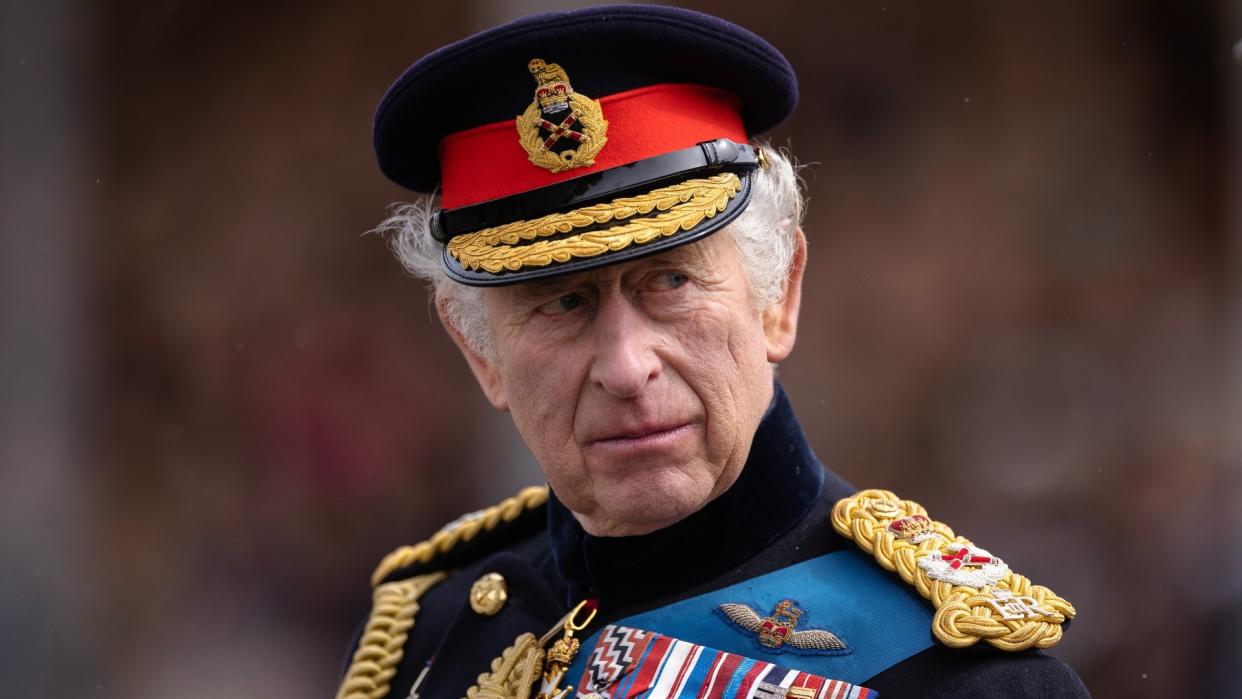King Charles at 75: how the monarch has made his mark

- Oops!Something went wrong.Please try again later.
King Charles, who celebrates his 75th birthday today, has not always had the easiest relationship with the British public.
In truth, few public figures "enjoy unwavering popularity for decades", said The Daily Telegraph. Even the seemingly unassailable late Queen saw her approval ratings plummet after her misjudged response to the death of Princess Diana.
Her son and heir King Charles III is "no exception to the rule that when it comes to public opinion, what goes up must come down, before it goes back up again", said the paper.
'Potential for much to go wrong'
Charles became king a little over a year ago with the "potential for much to go wrong", said The Wall Street Journal. He was following Britain's much-loved and longest-serving monarch, had a record of outspoken activism and was facing the most divided royal family in decades.
But Charles this year has been "much more about stability and reassurance than about change or reform", agreed the BBC's royal correspondent Sean Coughlan. "Any expectations of a modernising monarch have so far been put on hold."
"It's been surprising in its lack of surprises," said royal commentator Pauline Maclaran. "People have very quickly become used to him as King."
This is borne out in the polls, which show that nearly two-thirds of the British public think Charles is doing a good job. He has been aided in this by the positive perception of Queen Camilla.
"He is popular, as he has never been before," wrote Max Hastings in The Japan Times. Accession, the prize for which he waited until late in life, has "mellowed and cheered him" and "he appears willing to heed advice, good advice, as in the past he was not".
'Safety-first approach'
Critics of Charles, who had waited longer than any other heir in British history to take the throne, had predicted he might seek a "radical overhaul of the monarchy and abandon his mother's staunchly neutral and apolitical approach to the role", reported Reuters. "But, in keeping with earlier promises, he has put aside his campaigning on the environment and climate change and remained within the accepted boundaries."
Since the day of his mother's death, said Hastings, "he has toured his kingdom meeting and greeting; conducted a highly successful state visit to Germany; and appeared to cast off much of his accustomed gloom both about himself and the world in which he lives".
He may have adopted a "safety-first" approach but he has not completely given up on the passions he pursued as Prince of Wales.
Last week, King Charles rebranded his charities as the King's Trust and King's Foundation, "which will send another message of keeping working rather than slowing down or handing over the reins to the next generation", said the BBC.
'Monarchy steady on its foundations'
"Not everything has been plain sailing," said Reuters, with the most high-profile issue remaining his own family and questions around the royal finances.
A year into Charles's reign, these remain "shrouded in secrecy", said Hastings, and with Britain’s economy in the doldrums, "it seems extraordinary that nobody is making a fuss about the self-indulgence of the royal lifestyle, which we expected to be curtailed after Queen Elizabeth II’s death."
He has nonetheless "won praise for his deft handling of Prince Andrew's fall from grace, and sympathy for a very public falling out with his younger son, Harry", said The Telegraph.
He still faces the twin challenges of winning over younger Brits (a recent YouGov survey found just 35% of those aged 18 to 24 were in favour of keeping the monarchy) and perhaps the bigger task of maintaining support for the Commonwealth.
In this, said Zoe Williams in The Guardian, Charles suffers in comparison to his mother in that he "lacks the Queen's inevitability, that sense that he is there because he always has been", and "that aura of self-abnegation, of having surrendered himself to duty".
For many republicans, the death of the Queen and accession of King Charles was long seen as the moment when the British public would finally fall out of love with the Windsors. But "our monarchy – in this 21st century, Britain's foremost anachronism – has not for ages appeared so steady on its foundations", said Hastings. That is perhaps King Charles's greatest achievement.

